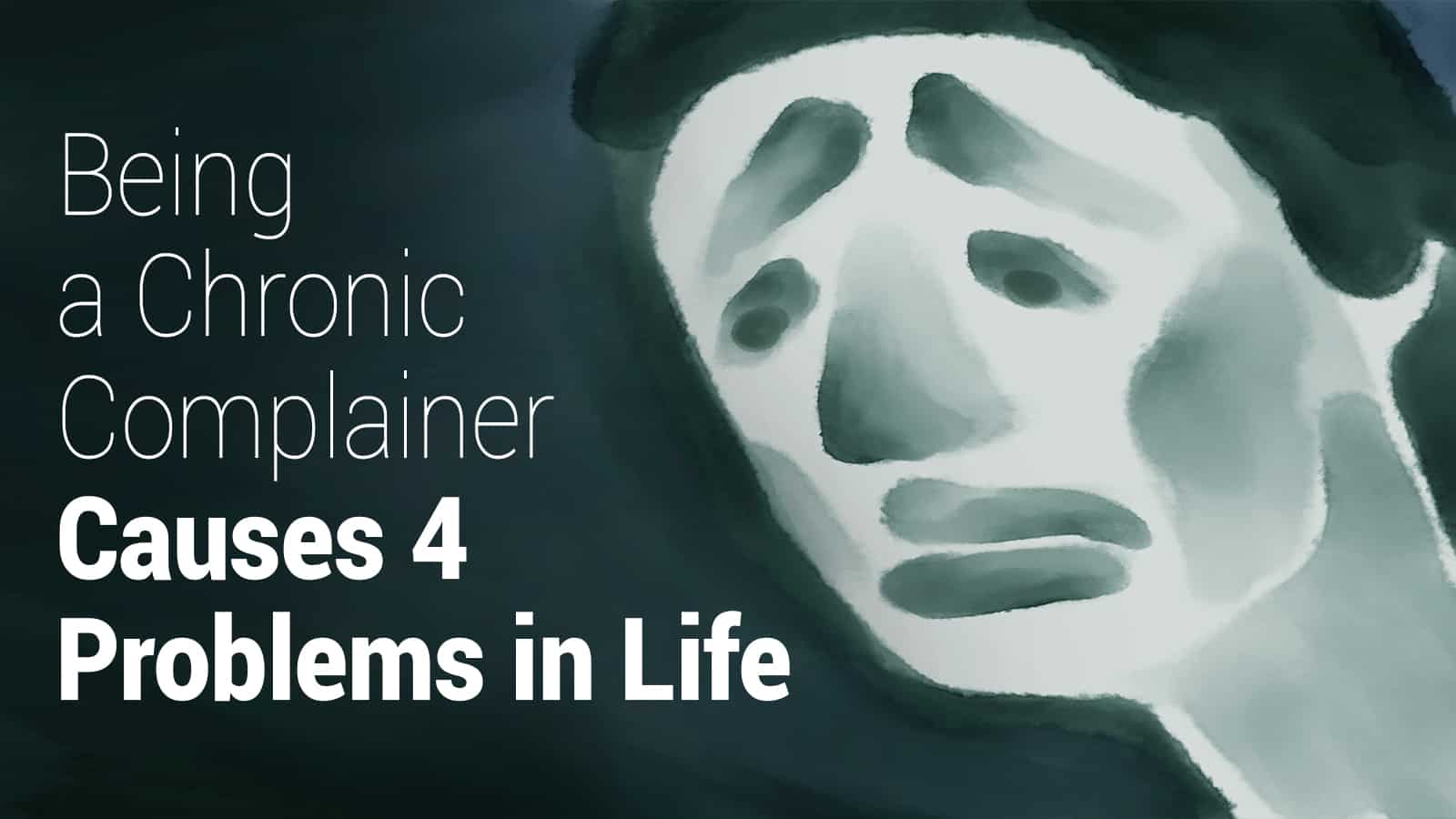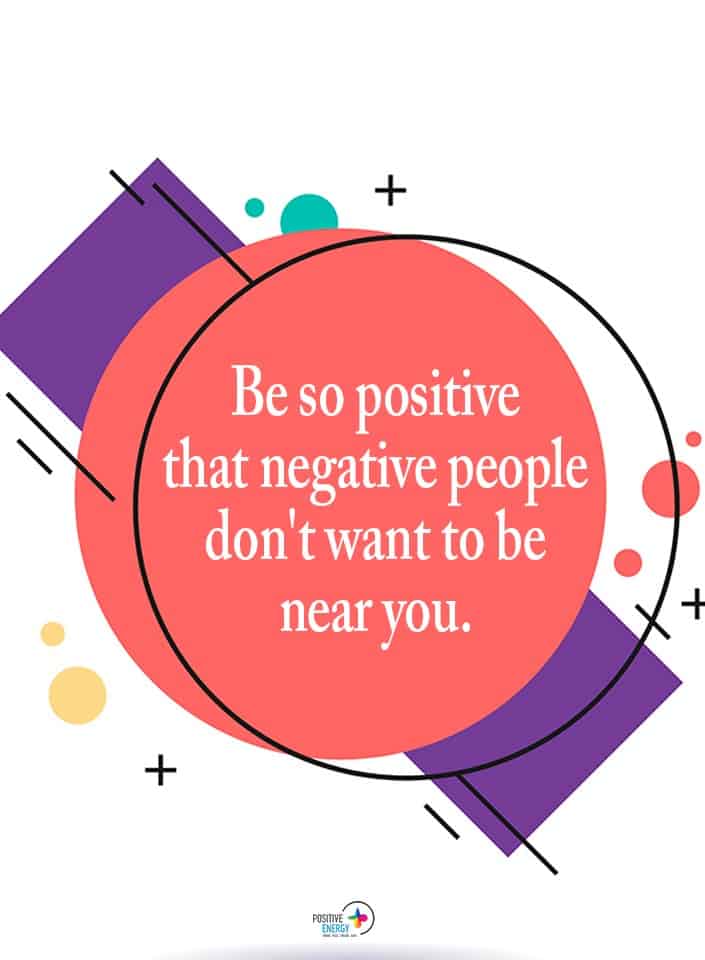Do you know a chronic complainer? These types of people always seem to have something to whine about. No matter how much good is going on in their lives, they manage to dig out something negative to vent about.
What if you’re a chronic complainer? You might think that there’s nothing wrong with that sort of behavior. But what you don’t realize is that you’re actively jeopardizing yourself! Here’s how being a chronic complainer causes these four problems in life.
1. Being a Chronic Complainer Exhausts You Mentally and Physically
Complaining within reason can help to relieve some stress. But there’s a point where it stops being about expressing how you feel and starts creating more negativity instead. Unfortunately, the perceived utility that you see from your complaining actions isn’t always accurate. You might think that complaining is helping you even when it’s actively harming you, say studies.
A chronic complainer will tire themselves out with their complaints. It’s just exhausting to complain all the time. The main reason this happens is that complaining can activate your stress response. Your body rushes to help you deal with the stress, which causes it to go into overdrive and abandon other “unnecessary” functions to focus on survival.
As is likely obvious, putting your body in a constant state of stress is not a good way to live your life. It’s taxing on your body’s stress response and your mental state. This is why being a chronic complainer can exhaust you so much. This can even become a cause for chronic stress that completely upends your body’s hormones and leaves you with many health issues. These may include the following:
· Poor Mood and Depression
Focusing on the negative things in life will dampen your mood. You’ll have enhanced symptoms of depression and will feel sadder every day. If you’re noting that you’ve been feeling doom and gloom, maybe you need to tone the complaining down.
· Anxiety Stems From Chronic Complainer Behaviors
When the stress gets too chronic, anxiety kicks in. You’ll focus on all the bad things in your life, and your brain will be in panic mode. You may even enter fight-or-flight, so you’ll always be on edge and ready to react at a second’s notice. This constant vigilance of anxiety is exhausting, and it can warp your perception of reality.
· Lack Of Sleep
When you’re stressed out, anxious, and depressed, it’s much harder to sleep. You might face insomnia, nightmares, or generally poor-quality sleep. This further contributes to your everyday exhaustion. If this goes on for long enough, your body will fall apart!
· Low Immunity
Because your body is in its stress response state, it’s not focused on protecting you from sneakier threats like pathogens and viruses. You’ll catch colds more quickly and be much more susceptible to various forms of sickness.
2. Being a Chronic Complainer Prevents Progress
Even a chronic complainer typically doesn’t want to stop progressing in life. They still want to succeed and achieve things, even if they’re confused about how or feel discouraged about their current progress.
If you’re a chronic complainer, you might not realize how much the act of complaining is sabotaging you and your success. Here’s how constantly whining impedes you:
· It Keeps You In The Past
If you often find yourself complaining about past situations and events, the chances are that you’re still stuck there. You can’t change what has already passed, and complaining about it keeps you trapped in a world you’ve already left behind. This kind of rumination means you cannot devote your mind and body to the present – much less to the future.
· It Damages Confidence
Confidence is an essential part of progress. You need to believe in your capabilities and strengths to move forward. Complaining can often drain confidence, sapping at your self-esteem. Continually complaining about your life without ever making plans to change things will make you hate yourself. And the less you like yourself, the less you’ll believe that you can achieve great things!
· It Enhances Feelings Of Powerlessness
A chronic complainer often wastes a lot of time and effect whining about things outside their control. Eventually, this will start to get to them. If you’re in this position, feelings of helplessness have likely begun to overpower you. You might feel empty when faced with the futility of particular circumstances. Instead of focusing on what you can do, you’re focusing on what you can’t, so you never move. You can only see challenges and hurdles. Even if you put on a brave face, your focus will force you to spend your effort and concentration on the unchangeable.
· It Does Nothing Productive
Even if your complaining doesn’t actively harm you, it still doesn’t help you. This means you’re wasting time on complaints instead of doing something productive. It eats up your time and does nothing for your goals. You could spend this time doing something more positive that brings you closer to success!
3. Being a Chronic Complainer Harms Your Brain
Complaining can seem like a minor little action, so it’s hard to see how it can directly harm your brain. And it’s true – a little bit of complaining isn’t harmful. But a chronic complainer will hurt their brain and damage it in the long run with all their negativity and complaints.
Studies show how complaining all the time can cause the hippocampus to shrink. The hippocampus is the part of the brain that is crucial for numerous cognitive functions. These functions include memory, adaptability, and behavior. The hippocampus is also harmed the worst in most forms of dementia and neurodegeneration.
A shrinking hippocampus means you’ll wind up with long-term damage as a chronic complainer. The average individual complains up to thirty times per day. However, chronic venters can’t stop speaking their negative thoughts to anyone who will listen. Worse still, the same study showed that hearing someone complain can already cause problems in the brain.
In this way, complaining is a negative cycle. Chronic complainers attract negative people, who complain more in turn. The process of complaining perpetuates itself until everyone’s dealing with long-term damage to their brains due to all that yakking!
Why does this happen? It’s theorized that this is due to how easily you can rewire your brain. A chronic complainer has trained their brain to seek out negative things and amplify them. They continue to do that at a more and more severe rate. You essentially teach yourself to get better at being a downer! This also means:
- You’re at a higher risk of developing depression and anxiety
- You experience more stress every day that can further harm your brain
- You get worse at regulating and properly managing emotions, so complaining becomes your only coping mechanism
- Your situations get progressively worse instead of ever-improving
4. Being a Chronic Complainer Damages Your Relationships
We talked about how being a chronic complainer means attracting other people filled with negativity. On top of that, though, those in your life who aren’t fellow complainers will drift away from you. A chronic complainer creates an environment that feels hostile to positive people. You may notice this if:
· People Point Out The Complaining
Everyone complains now and then, and most social circles include a fair bit of people venting and complaining about. People are usually happy enough to listen to their friends whine, especially if you’re happy to hear to them in turn. So when people start to point out, whether seriously or jokingly, that you complain too much, it’s probably time to do some reflection.
· Everyone Around You Is A Chronic Complainer
Complaining attracts other complainers. There’s nothing wrong with a good whine session when someone’s going through a hard time. But if your friend groups are primarily focused on negativity all the time, there’s something wrong, and it needs to be addressed. Worse still, this won’t even help you all bond together. Studies show that exchanging negative attitudes, even when they’re shared, can damage relationships.
· People Start Avoiding You If You Are A Chronic Complainer
You used to spend time with many different people, but now your old friends and acquaintances don’t want to hang out. They may have stopped inviting you to places or might exclude you from certain events. It can hurt, and sometimes this isn’t necessarily your fault. But if you’ve already had these people talk to you about your complaining, then your chronic whining may have finally pushed them away. There’s nothing quite as upsetting as someone who keeps bringing the mood down with negativity. Speak to those who seem to avoid you and ask them what’s going on.
· Complaints Turn Into Competitions
When you complain about something, you notice that those in your social circle turn it into a misery competition. For example, if you talk about how tired you are, they’ll tell you how they’re much more tired than you. This goads you into one-upping them, and the whole thing turns into a pointless contest of suffering. This is a sign that you’re a chronic complainer who has attracted people who complain just as much. You’ve formed a closed circle where you reinforce each other’s negativity!
· You Complain About Your Relationships And Those In Them
This is the point where being a chronic complainer has also led to complete self-sabotage! Nobody wants to be friends with someone who backstabs them or talks negatively about them behind their back. If you catch yourself complaining about one of your friends to several other friends and keep doing that for different people, stop! Your chronic complaining has gone too far!
· You’re Overly Irritable
When you complain, you reinforce negativity in your mind, putting you in a constant state of irritability. This means you’re more likely to lash out at others and treat those around you poorly. This will undoubtedly harm your close relationships and will likely isolate you.
Final Thoughts On How Being A Chronic Complainer Causes Problems In Life
Complaining has its purpose, but it also has its time and place. Constantly venting and whining nonstop is a sign that you’re a chronic complainer. That outlook on life will only harm you and add problems to your life, so don’t get trapped in it!

















 Community
Community

